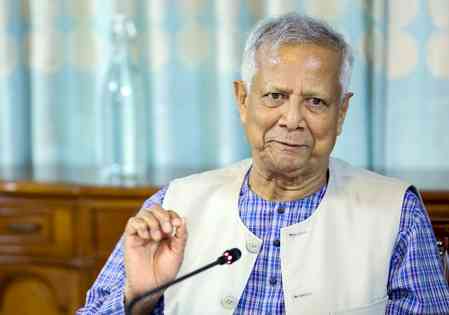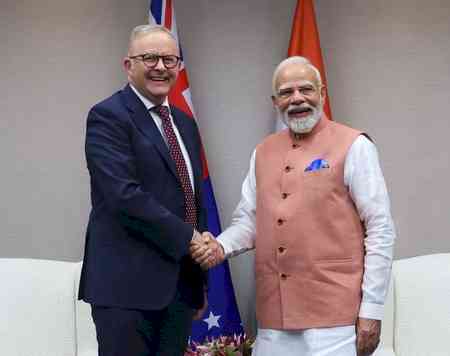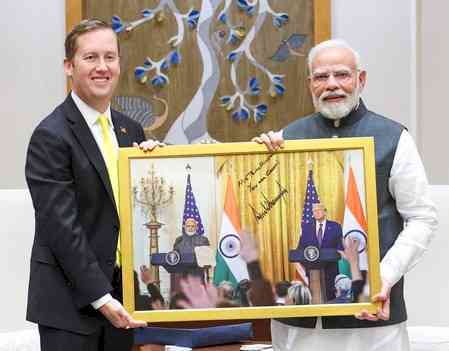Bangladesh’s deafening silence: Dhaka walks tightrope as India strikes terror camps in Pakistan
As tensions soar across South Asia following India’s precision strikes against terror camps in Pakistan and Pakistan-occupied Kashmir (PoK) under Operation Sindoor, Bangladesh's interim government led by Muhammad Yunus has chosen a path of calculated silence, refraining from making any direct statement about the operation or India's retaliation for the April 22 Pahalgam terror attack.

Dhaka, May 8 (IANS) As tensions soar across South Asia following India’s precision strikes against terror camps in Pakistan and Pakistan-occupied Kashmir (PoK) under Operation Sindoor, Bangladesh's interim government led by Muhammad Yunus has chosen a path of calculated silence, refraining from making any direct statement about the operation or India's retaliation for the April 22 Pahalgam terror attack.
While world capitals — from Washington to Beijing — have issued calls for restraint amidst Islamabad's incendiary rhetoric, Bangladesh has treaded carefully in an attempt to position itself as a cautious observer. A brief statement from Foreign Advisor Touhid Hossain urged both India and Pakistan to "exercise restraint" and pursue dialogue. He revealed that Pakistan's Deputy Prime Minister and Foreign Minister Ishaq Dar had called him on May 5 to brief Dhaka on Islamabad’s version of the regional developments. "We want peace. We don't want to see any conflict here," Touhid told the press on May 6.
Analysts are of view that Bangladesh’s ambiguity is strategic as it is aimed at balancing its growing proximity to Pakistan post-August 2024 while avoiding direct confrontation with India. The Yunus dispensation’s alignment with the pro-Islamist Jamaat camp and reported ISI backing further complicates this balancing act.
This ambiguity extended to the National Citizen Party (NCP), the student-led political arm backed by the interim government. NCP leaders Nahid Islam and Akhter Hossain raised alarms about national security in social media posts, claiming India's strikes could destabilise the region, and issued a press release deflecting blame towards "Awami League fascists". NCP's response seemed more concerned about internal politics than the regional terror threat India retaliated against, analysts believe.
Observers also raised concerns about Bangladesh becoming a potential hub for Pakistani terror networks, pointing to the freedom enjoyed by extremist elements under Yunus's watch. Meanwhile, NCP leaders have remained silent on critical national issues — including collaboration with Myanmar's Arakan Army, questionable border concessions like St. Martin’s Island, and the handing over of port control to foreign actors.
Bangladesh's military, however, seems to be taking threats seriously. On April 30, during the Akash Bijoy 2025 exercise, Yunus stated, “India and Pakistan remain on the brink of conflict… to remain unprepared is nothing short of suicidal."
Despite this, his government's response — or lack thereof — to Operation Sindoor raises serious questions about Dhaka’s current geopolitical leanings and internal stability even as New Delhi watches closely.



 IANS
IANS 










